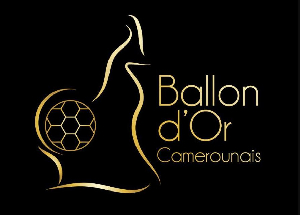Senior advocate Henry Ngale Monono has said in spite of all that is transpiring in the Common Law Lawyers struggle to have the Biya’s regime acknowledge that there is a bi-jural legal system in Cameroon, they are not at war with the state.
But he slams the civil criminal system that is practiced in Francophone Cameroon which they want to force on Southern Cameroons, asserting that “It has taken us more than a hundred years backwards.”
He equally castigates the imbalance in appointments in the Cameroon judiciary. It has been long since the senior lawyer granted an interview in recent times.
EXCERPTS:
In 2009 you led a delegation to Yaoundé to petition the PM on appointment of Notaries in the two Anglophone regions and nothing happened. What if they decide again to ignore the Bamenda Common Law memorandum?
It is not true that nothing happened. The casus belli at that time was the attempted appointment of notaries in the common law jurisdiction. In 2009, we went and saw Prime Minister Inoni, with more than 500 Common Law Lawyers. My late friend, Barrister Bonu and I headed the group that fought against the appointment of notaries in the English speaking regions. The Prime Minister assured us that notaries shall not be appointed in the English-speaking regions. We went back satisfied. That position has been upheld by the General Assembly of the Cameroon Bar Association. If nothing happens, we shall act within the laws; we are a respectful and law abiding professional group and there are various means of making the government to listen to your plight. We do not believe in disorder or a show of force. Any act that will cause a break down in law and order is deprecated by lawyers. Lawyers are by nature conservatives and as social engineers, it behoves us to act within the law at all material times.
While you are acting within the law, a younger colleague of yours is reported to have been locked up by the Divisional Officer of Tiko. What were your reactions?
As an individual, I was taken aback because this very administrator has had a number of unfortunate incidences with other lawyers. In this particular case, the Divisional officer locked up the lawyers in their own chambers. This is force imprisonment and an actionable tort. I am surprised that the Government continues to keep such a person in a position of power when it is clear that he is not a fit and proper individual. By now he should have been transferred, sanctioned or dismissed from the service. Such individuals only go to tarnish the reputation of the administration. I was very disappointed. Contrary to your view, a senior advocate, Senator Nfor Tabetando feels otherwise.
Barrister Tabetando is entitled to his own opinion. But when an administrator commits an act which is fundamentally irregular, he is no longer protected by the cloak of an administrator. If an administrator goes out of his way to commit an illegality he immediately losses his protection as an administrator and this is what we are going to do; we have done it before when Lawyers in Kumba sued the SDO, so nothing stops us from suing the DO for Tiko who decides to take the law in to his own hands and behaves arbitrarily.
The same Tabetando is reported as saying Lawyers are manipulators of public opinion.
I do not believe Barrister Tabetando said that; I think he was quoted out of context; He is a senior lawyer of repute and unless I meet him one on one, I will not be able to make a comment about what he said. But do not forget that Barrister Tabetando was elected Senator under the CPDM ticket. I will not like to call him an apologist of the system. But do not forget that a man cannot cut his nose to spite his face. Over seven hundred lawyers went to Bamenda and we are together; I am sure barrister Tabetando has been quoted out of context. Is barrister Tabetando wiser than 700 lawyers?
You have been practicing for so long, how would you compare the legal system now and yesteryears?
First of all I must tell you that the Criminal Procedure Code is a bad law. It has reduced the civil liberties of Anglophones. It has taken us more than a hundred years backwards. Now we have trial in absentia which does not exist under our Common Law system. Now, a magistrate can amend a charge which under the Common Law system is the exclusive preserve of the prosecutor to amend charges. It is only in France and in Italy where civil law is practised that we can have trial in absentia. If the magistrate amends charges, then his neutrality is compromised. An umpire or referee cannot be giving blows to one of the parties.
All these are incidences of civil law which are only found in Italy and France as against common law procedures where the magistrate is independent, no trial in absentia etc. I was personally involved in a matter in which a client of mine was sick. He had cholera over the weekend. He was admitted in the hospital all over the weekend. While in hospital, Monday morning, the magistrate sentenced him to two years imprisonment.
He was imprisoned for almost three weeks before he was released by the court of appeal. This could not have happened in the West Cameroon days where Common Law was strictly practised. Under our former system, guarantees of freedoms of liberties and fair trial were enshrined in the constitution and mandated by our procedural lawyers. The criminal procedure code should be revised because you cannot come and meet a people who have been civilised and you are taking them a hundred years backward.
A recent publication shows discrepancies in the way appointments it the judiciary are made in this country. What is your take on it?
It is unfortunate that more than 50 bailiffs have been appointed and only 2 are Anglophones. In countries like America and Canada, when you fall under disadvantaged groups, you make laws which will make the minority groups know that they are not being discriminated against. In America they call it affirmative action. In Canada, they call it equality employment. In India, they call it reservation. You use the law to assuage a minority population which is disadvantaged; so that they feel they are not being discriminated against. There should have been at least 20 Anglophone bailiffs amongst the 50. The Government should have gone an extra length to make sure that the equation is balanced.
What are the consequences?
First of all the bailiffs don’t even understand English. Some of them are absentee Bailiffs who abandon their offices to be operated by experienced clerks. Recently a bailiff was convicted in the Limbe Court of First Instance because of wrong processes and the English language used in the process was atrocious. These are the kinds of conflicts and contradictions you find within a system that does not consult before appointing; it is unfortunate, we think that it should be corrected.
Are you saying that there should be no mix in the system?
No; It depends on your level of bilingualism; you have Cameroonians who are bilingual, you should be able to work as a Cameroonian wherever you are, if you are not like those who have been appointed here.
What do you do? You need to hear the kind of English they speak in Court. It is ridiculous. In Cameroon, lawyers are trained under the civil law and the common law system in all the universities. How do you transfer a civil law magistrate to a common law system who has not read the law of thought? The Ministry of Justice should be very careful because we are a bi-jural nation and their recent actions have threatened national integration and National Unity.
You should not work in a system in which you don’t understand the language, the culture and the laws. The Divisional Officers of Limbe I and II, the Brigade Commander, the Commissioner of Police and many other appointees in the Anglophone regions are not proficient in English and they are looked upon as an occupational force. However, we have people like the Governor of the South West Region and the Procureur General of the South West Region and examples of fine bilingual Cameroonians. We have francophone lawyers who are working in Limbe and Buea, they are bilingual and understand the Common Law. If you send us someone who decides to read a judgement in French, it is ridiculous. The Minister of Justice should take note.
Lawyers in Cameroon in General, but Anglophone lawyers especially seem to be at war with the state?
No, lawyers are not at war with the State. We are a respectable law abiding conservative professional body. What we are saying is that, in the midst of all these confusion, Common Law – Civil Law battle, we should have a federation. That is what we voted for. A federation doesn’t mean we are above the state. What we are saying is simple, we want a federation so that we can maintain our own cultural heritage; it is as simple as that. Our forefathers who voted to join our francophone brothers in 1961 did not a mistake when they said the country should be a two state federation.
We are beginning to see that the more we try to mix the two systems, there is going to be conflict; everybody should be able to respect what a federation is all about. If the Scottish and the Québécois are occasionally asked whether they are comfortable in their unions, the same questions should be asked to Anglophones every 25 years in a plebiscite. That is the civilised approach; instead of locking people up and arresting some for being SCNC every now and then. President Biya is a democrat and the Ahidjo days are over. We should act like a civilised nation.
Actualités of Tuesday, 2 June 2015
Source: Cameroon Journal













